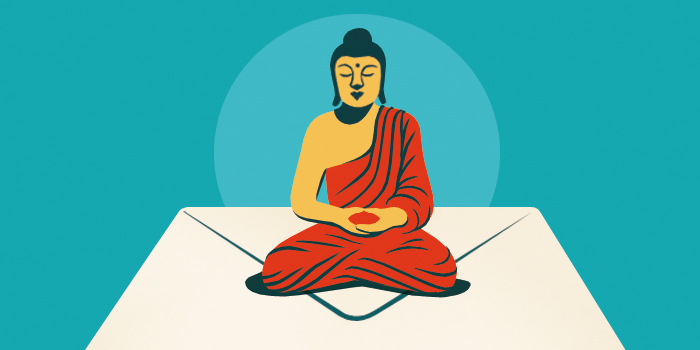What is secular dharma?
Secular dharma looks at the teachings of the historical Buddha, Siddhartha Gautama (Pali: Siddhattha Gotama), and the teachings and practices of the dharma in the context of the global, modern world. Instead of treating the four noble truths as unquestionable doctrine, secular dharma practitioners interpret the teaching as a wise recommendation that we practice four tasks (or a fourfold task) of embracing life, letting go of reactivity, seeing the ceasing of reactivity, and acting ethically and skillfully. Practicing these tasks enables us to take up a contemplative way of being in the world without Buddhism’s metaphysical truth claims. People who practice secular dharma are distinct from those who engage in Buddhist practice but are otherwise secular. While there is overlap, “secular dharma” describes a different movement.
Secular dharma is not (yet) a Buddhist school, or “vehicle.” It has no orthodoxy, no separate canon, no institutional presence, and is remarkably heterodox. Its sympathizers participate mostly in practice communities with friends of other Buddhist persuasions, or of none in particular. It is a movement that is typically Buddhist in its open-minded skepticism and its desire to let the dharma speak most effectively, in culturally available terms.
By far the majority of dharma practitioners living outside majority-Buddhist nations belong to Asian diasporas and preserve the practices of their countries of origin, though this is changing. Rapidly growing in number are ethnic Westerners who have adopted, and sometimes adapted, one or more of the Asian forms of practice, with those forms’ associated beliefs and organizational culture (including their understanding of authority, hierarchy, and gender relations).
A third, emerging category of practitioners in the West encompasses people of all ethnicities who are developing forms of practice, community, and thought that harmonize with progressive values, starting with egalitarianism, inclusiveness, and democratic self-rule. They hold care as their core value and promote both individual flourishing and social justice. It is this third group that consider themselves practitioners of secular dharma

Tricycle is more than a magazine
Gain access to the best in sprititual film, our growing collection of e-books, and monthly talks, plus our 25-year archive
Subscribe now